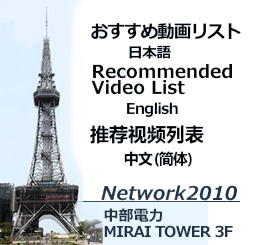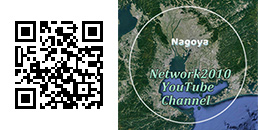- Nagoya in the Edo period(1603-1868)
- ①The Okehazama ancient battlefield
- ②Arimatsu to Miya post‐town
- ③Miya post-town
- ④Atuta Shrine
- ⑤Atsuta~Furuwatari
- ⑥Tachibana-cho
- ⑦Osu Kannon Temple
- ⑧Osu Monzencho
- ⑨Shirakawa Park
- ⑩Nagoya Castle Town 01
- ⑪Nagoya Castle Town 02
- ⑫Toshogu Shrine Festival
- ⑬Horikawa River1
- ⑭Horikawa River2

Osu Monzencho circumference
Uramonzencho is located in the east of Monzencho. Although Banshoji which is the family temple of the Oda family was located in the whole place at present Marunouchi 2-chome and Nishiki 3 chome, Naka ward,Nagoya City ,this temple was moved to the present location for the Nagoya Castle Town area construction.Still now, Oda Nobuhide's grave has been located in the precincts of the temple. Sokenji Temple(the Myoshinji Sect of the Rinzaishu) was transferred from Kiyosu in early stages of the Edo period. It was built by Oda Nobuo(Nobunaga's second son ) in order to perform a memorial service of Nobunaga who passed away in the Honnoji Incident. Sekoin Temple is Matsudaira Tadayoshi's family temple. Matsudaira Tadayashi was born as the fourth son of Tokugawa Ieyasu and played an active part in the Battle of Sekigahara.Although he had been governing the Owari feudal domain after the battle, he passed away soon.As a result, Tokugawa Yoshinao of Ieyasu's ninth son succeeded the Owari feudal domain.

Banshoji temple
The Oda family at the time of Oda Nobuhide having died had only small influence in the Owari district. In order to deceive a surrounding eye,Nobunaga threw makko(incense powder) at Buddha or a mortuary tablet on the funereal day. Hirate Masahide of Nobunaga's trainer took the responsibility for this eccentric behavior, and committed hara-kiri. This anecdote has been introduced by the teleplay even now.

Hakusetsu Inari Shrine
The white fox which had been living from before for 1000 years or more in the ground of Banshoji foundation has been deified in Hakusetsu shrine. When Banshoji temple declined, this fox disguised itself as the prostitute and managed money. For the reason, there is much visit to the shrine of those who perform commerce.

Sokenji Temple
Just before unification of the whole country,Oda Nobunaga was betrayed by the vassal's Akechi Mitsuhide and passed away in Honnoji Temple.The Nobunaga's second son Nobuo transferred Ankokuji temple of the Ise country to Kiyosu, and built this temple. The capital of the Owari clan relocated to Nagoya and this temple was also moved to Nagoya in 1610 of the Edo period. There is the mausoleum of Oda Nobunaga and Oda Nobuo in the precincts of this temple.

Sekoin Temple
Sekoin is the family temple of Matsudaira Tadayoshi(fourth son of Tokugawa Ieyasu). Tadayoshi fought desperately with Ii Naomasa in the Battle of Sekigahara(1600). The distinguished war services was evaluated and he was nominated as the lord of Kiyosu Castle. However, he died at the age of 28 for disease. The capital relocated to Nagoya in 1610. Since there was not his heir, Tokugawa Yoshinao of Ieyasu's the ninth son became the first lord of Nagoya Castle.

Daikoin Temple
Sezenji Temple(former Daikoin Temple) was built in Kiyosu by Matsudaira Tadayoshi in 1603. This temple was relocated to Nagoya in 1615 at the time of the capital relocation of the Owari clan. Since Buddhist name of Tadayoshi was "Daikoin", the temple'sname was changed into the present name. If people apply the smoke of Senko(a joss stick) to the body by hand, they have been told to be efficacious.

Amidaji Temple
Nehan-e (Buddhist service held on the day of Buddha's death) has been performed on February 15 of the lunar calendar. Pupils are watching Gautama Buddha who did the head north and lay the right side downward.
Map
h3>Video
【Video】Osu Daido Chonin Matsuri Festival
-

Banshoji
-

Shintenchi Shopping center
-

The grave of Oda Nobuhide
-

Sokenji Temple
-

Sokenji Temple
-

Honmachu-dori street
-

Honmachu-dori street
-

Daikoin Temple


